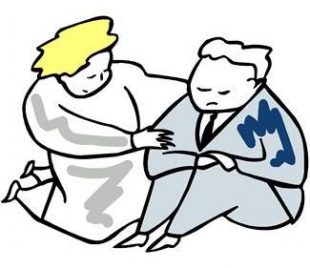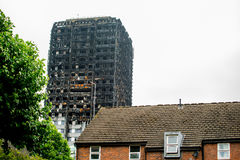Although it’s true to say that no two days are the same in the world of social work, we generally work with individuals and families to support them through difficult times. We are there to make sure they are safeguarded in circumstances which would otherwise make them vulnerable, providing help and support to improve their lives.
We maintain professional relationships with people, acting as their guides and advocates. We also use professional judgment to make tough decisions that might not always be well received by those we are trying to help.

Sometimes though, already difficult personal circumstances are dealt further unexpected blows; a sudden death in the family, the rapid onset of illness, or – as we have tragically witnessed in recent times – loss and injury through acts of terrorism, natural disaster or institutional neglect.
Social workers can bring a unique combination of skills, knowledge and values to this area of work which complements the work of the emergency and health services.
Such awful events throw our skills in crisis and trauma work, including emotional and therapeutic support into sharp relief. Our empathic and relationship-based holistic approaches are also put to the test. Regardless of the initial event’s nature, we have a vital role to play in every response phase following these traumatic experiences.
Indeed,social workers have been part of the response to the recent terrorist atrocities in Manchester and London and have also been involved in support efforts following the Grenfell Tower incident.
In Manchester, this involved setting up a centre for families waiting for news of loved ones, whilst police and NHS staff worked tirelessly to identify people during the immediate aftermath.
Alongside this, local authorities deployed enough hospital staff to make sure beds were made available as quickly as possible. Then, as now, social care staff continued to work with families of those in hospital or recently discharged to make sure they had access to appropriate care and support services.

I recently had the privilege of visiting social workers and social care staff coordinating support as link workers for people affected by the Grenfell Tower fire. No one could fail to have been deeply troubled and extremely moved by this tragedy - the devastation and loss of life was unimaginable.
Council staff, neighbouring boroughs and external agencies have come together to form a response service. This has resulted in robust family support for people affected. The ongoing work to establish positive and sustained relationships has made a real difference. Their coordinated approach makes giving advice and support much easier, helping people bond and recover within their communities.
The first priority was to address practicalities, then focus on helping people to process what they had just been through. This required incredible sensitivity – it was as much about waiting and listening as it was asking the right questions at the right time. These empathic skills of validation, normalising heightened and sometimes volatile responses, combined with unconditional understanding and acceptance, lie at the heart of good social work practice.
Hearing people’s stories helps social workers to assess their needs and strengths and shed light on how they might have coped during previous crises. It is also provides insights into the effectiveness – or otherwise - of community networks.
Longer term, social work practice will integrate an individual’s ‘survivor experience’ into person centred approaches. Like the individuals or families we are helping, we must accept that recovery may take years. We cannot change the past but we can influence how someone faces the future. This is about adaptation, building resilience and finding the strength to carry on.
More broadly, whether it’s helping the victims and bereaved of the atrocities and domestic tragedies in Manchester and London, or those struggling to cope with everyday life, we have a duty to hold services to account and coordinate responses where possible. The NHS rose to the challenge, marshalling services across trusts and local authority boundaries, speeding personnel and resources to where they were needed most.
Social workers have likewise stepped up and are still working well beyond normal working hours to make sure people receive the help they need - negotiating, advocating and maintaining continuity of care as link workers for families.
Across the world, social workers are part of the response to natural disasters and humanitarian aid support, such as the recent floods in Houston, Texas.
During crises, the social work voice can make a significant contribution to disaster response teams, working in collaboration with mental health professionals, housing officers, service commissioners and voluntary organisations.
All social workers should be prepared to respond to disasters and more thought will be given to the training and support they need to do so effectively. Communities come into their own in times of trouble and social care needs to be an active and informed presence within them. After all, if we can’t be effective in a crisis then we’ve got no business being social workers – it’s what we do!
Leave a comment